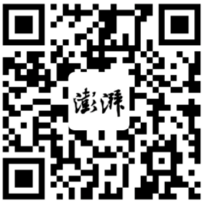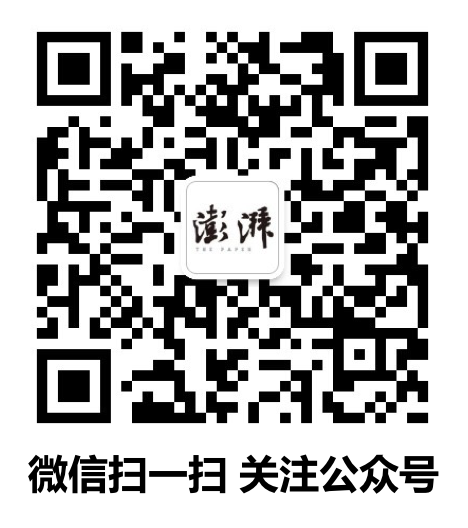- +1
周波:為什么美國必須立即撤銷對中國防長的制裁
【編者按】
從上月以來,美國的重要人物如國務卿布林肯、財長耶倫、美國總統氣候問題特使克里接連訪華。其中最引人注目的恐怕莫過于百歲高齡的基辛格,中國國家主席習近平、國務委員兼國防部長李尚福、中央外辦主任王毅先后會見了他。
一時間,陰云籠罩的中美關系似乎如耶倫抵達北京時的天空那樣,出現了一道彩虹。然而,中美關系的陰云并未消散,前路仍有風雨。比如,中國防長李尚福仍在美國的制裁名單上。7月12日,中國駐美大使謝鋒到訪五角大樓,應約會見美國助理國防部長拉特納。《環球時報》稱,拉特納在此時與謝鋒會見可能想借一波當前中美各領域恢復互動的“東風”,反映了美國國防部對于同中方在軍事層面建立溝通管道的迫切需求。謝鋒大使就兩國兩軍關系闡明立場,要求美方采取行動排除障礙、管控分歧,推動兩國兩軍關系逐步重回正軌。
正如澎湃新聞(www.kxwhcb.com)此前刊發的一篇文章所指出的,中方有等待彩虹的耐心,但美方也需要展現足夠的誠意。美方如果真的想恢復兩國軍方的交流溝通,以避免危險的誤判,那現在是時候解除對中國防長的制裁了。
雖然中美兩國近期在外交和軍事方面取得了進展,但兩國軍方之間的溝通與交流仍處于凍結狀態。美國對中國國防部長李尚福上將的制裁是一個必須解決的癥結,以避免出現危險的誤判風險。
7月6日,當美國財政部長珍妮特·耶倫(Janet Yellen)抵達北京國際機場時,罕見的一幕出現了:一場陣雨過后,天空中出現了彩虹。美國駐華大使尼古拉斯·伯恩斯(Nicolas Burns)不失時機地向面帶微笑的耶倫指出了這一點。中國國務院總理李強在會見耶倫時也提到了那道彩虹,他說:“我想,中美關系不止是風風雨雨......經歷了風雨,我們一定會看到更多的彩虹。”

Janet Yellen
現在的問題是,在再次見到彩虹之前,我們還要經歷多少風雨。雖然兩國在外交和經濟領域似乎取得了一些小的進展,但在一個關鍵領域,即中美兩軍之間的溝通卻沒有任何“去風險”的跡象。
曾幾何時,中美雙方都認為兩國軍方之間的聯系與溝通甚至可以成為政治或經濟緊張局勢中的壓艙石。然而這種樂觀情緒早已一去不復返。在時任美國眾議院議長南希·佩洛西(Nancy Pelosi)竄訪臺灣之后,北京方面以在臺海周邊地區舉行數日軍事演習作為回應,并中止了中美軍方之間的互動。
問題在于,即使中國人民解放軍現在想恢復對話,這一選項也根本不存在。現任中國國防部長、國務委員李尚福上將曾擔任中國人民解放軍裝備發展部部長。自2018年以來,因中國從俄羅斯主要武器出口商——俄羅斯國防出口公司(Rosoboronexport)購買戰斗機和防空導彈系統,他受到美國方面的制裁。這種制裁本身就是不可理喻的,中國與俄羅斯的軍事貿易沒有違反任何國際制度,兩個主權國家之間的此類貿易本就與美國無關。
6 月初在新加坡舉行的香格里拉對話會上,李尚福將軍和美國國防部長勞埃德·奧斯汀(Lloyd Austin)只是簡短地打了個招呼,然后兩人就面無表情地坐在同一張桌子上,他們之間沒有任何眼神交流,這令人唏噓不已。對話會的四天前,北京方面拒絕了五角大樓邀請中國防長與美國防長在新加坡會面的邀請。
如果說歷史能夠提供有益的訓誡,那么美國當代史可以從另一個角度來解讀,即美國對其他國家的制裁與干預是如何屢屢失敗的:美國對朝鮮和古巴的制裁并沒有成功實現政權更迭;它也沒能改變緬甸、尼加拉瓜、委內瑞拉、敘利亞、也門和伊朗的行為方式。自俄烏沖突以來,對俄羅斯的制裁無論規模有多大,都只是暫時性地阻礙了俄羅斯經濟的發展,卻也并沒有使其嚴重癱瘓。
對中國國防部長的輕率制裁正在關上一扇窗,而保持開放對兩國都有好處。不妨試想一下,在中國國防部長的五年任期內(比美國總統的任期還長),他將無法訪問美國,也不會邀請美國國防部長訪華。其他層面的交流即便有也將寥寥無幾。再想想另一種情形——中美軍方的高層領導無法在2008年建立的中美軍事熱線上彼此溝通,而這條熱線本應在南海或臺灣海峽出現最危險的情況下發揮關鍵作用。
在香格里拉對話會上,當被問及中國海軍艦機在臺灣海峽攔截美國軍艦的問題時,李尚福將軍表示,他希望大家想一想為什么所有類似的問題都發生在中國附近,而不是其他國家附近?不可否認,兩國軍方之間的對話有時就像 “雞同鴨講”,但有的談總比沒得談好。缺乏溝通必然會導致誤解和誤判。
這種缺乏溝通的情況甚至在冷戰時期都沒有出現過。盡管存在相當程度的敵意,但當時兩個超級大國仍保持著暢通的溝通渠道,并制定了一系列建立信任的措施,其中一些,例如核軍控條約——《新削減戰略武器條約》(New START)即使在發生了俄烏沖突的情況下仍然有效。
華盛頓方面懷疑中國將不溝通作為獲取利益的策略。奧斯汀在香格里拉對話會上說:“對話不是一種獎勵。對話是必要的。”但對中方來說,美國的制裁本身就形成了一個先決條件,在對話開始前就制造了一種不愉快的氣氛。美國的立場是,制裁在技術上并不禁止奧斯汀和李尚福之間的會晤,因此沒有必要取消制裁——這是美國式虛偽的典型例子。
理論上來說,解除對李尚福的制裁并不困難,因為制裁本身是拜登政府可以撤銷的行政命令,但這對美國總統喬·拜登(Joe Biden)來說可能是個政治上的挑戰,因為他不希望在鷹派眼中顯得對中國軟弱,尤其是在2024年大選即將到來的這個時間點。
如果這兩支世界上最大的軍隊在未來五年內仍不進行對話,那么這種局面將比冷戰時期任何時候都更加危險。拜登和習近平主席在去年11月會晤時同意為兩國關系設定一個“底線”,以確保競爭不會滑向沖突。要做到這一點,套用奧斯汀的講話來說就是——解除對中國國防部長的制裁不是獎勵,而是必要的。而正確的時機就是馬上。
(周波,清華大學戰略與安全研究中心研究員。本文英文版首發于《南華早報》,英文版原文見下。中文版譯者:劉煒康)
附英文版原文:
Why the US must revoke sanctions on China’s defence minister – now
? While progress has been made on the diplomatic and military front, US-China military-to-military contact remains frozen
? US sanction on Chinese Defence Minister General Li Shangfu is a sticking point that must be resolved to avoid the risk of dangerous miscalculations
When US Treasury Secretary Janet Yellen arrived at Beijing’s international airport on July 6, something rare appeared – a rainbow in the sky after a shower. American ambassador to China Nicolas Burns wasted no time in pointing this out to a smiling Yellen. When he met Yellen, Chinese Premier Li Qiang also mentioned the rainbow, saying, “I think there is more to China-US relations than just wind and rain…we will surely see more rainbows after going through the wind and rain.”
The question is how much wind and rain we will have to confront before we see a rainbow again. While there seems to have been small advances in the diplomatic and economic fields, there is no sign of “de-risking” in one crucial area – communication between the two militaries.
There was a time when both sides believed that the military-to-military relationship could even serve as a ballast stone amid political or economic tension. Such optimism is long gone. In the wake of then US House speaker Nancy Pelosi’s visit to Taiwan, Beijing responded with days of military exercises near and around the island and suspended US-China military-to-military interactions.
The question is even if the People’s Liberation Army wishes to resume dialogue now, it is simply impossible. General Li Shangfu, now Chinese defence minister and state councillor, used to head the PLA’s Equipment Development Department. He has been under US sanctions since 2018 over the purchase of combat aircraft and an air-defence missile system from Rosoboronexport, Russia’s main arms exporter.
This is ridiculous. China’s military trade with Russia was not in violation of any international regime and such trade between two sovereign states has nothing to do with the United States.
At the Shangri-La Dialogue in Singapore in early June, it was sad to see General Li and American Secretary of Defence Lloyd Austin briefly greet each other and then sit stone-faced at the same table without making eye contact. Four days before the dialogue, Beijing declined the Pentagon’s invitation for a meeting between the Chinese defence minister and his American counterpart in Singapore.
If history provides useful lessons, contemporary American history could be read in another way – how its sanctions on others have repeatedly failed. The US sanctions on North Korea and Cuba didn’t succeed in regime change. Nor did they work in changing the behaviours of Myanmar, Nicaragua, Venezuela, Syria, Yemen and Iran. The sanctions on Russia since the war in Ukraine, however massive, have stymied but not seriously crippled the Russian economy.
A frivolous sanction on China’s defence minister is closing a window that both countries would benefit from keeping open. Just imagine that during the five years of his tenure – longer than the tenure of an American president – China’s defence minister won’t be able to visit the United States and he won’t invite his American counterpart to visit China. There will be few, if any, exchanges at other levels.
Imagine for another moment that the Chinese and American military leaders don’t talk on a hotline which was established in 2008 and is supposed to play a crucial role in the most dangerous situations, be it in the South China Sea or in the Taiwan Strait.
At the Shangri-La Dialogue, when asked about a Chinese navy ship aircraft intercepting a US military vessel in the Taiwan Strait, Li asked people to think why all the problems occurred near China and not near other countries.
Admittedly, the military-to-military dialogue between the two countries sometimes resembles a conversation between people talking at cross-purposes, but it is better than no talk at all. The absence of communication will inevitably lead to misunderstanding and miscalculation.
Such a situation wasn’t even seen during the Cold War. In spite of absolute hostility, the two superpowers maintained open lines of communication and established a series of confidence-building measures, some of which, like the New START nuclear arms control treaty, are still in place, despite the Ukraine war.
Washington suspects that Beijing is using no communication as a strategy for reaping benefits. At the Shangri-La Dialogue, Austin said, “dialogue is not a reward. It is a necessity”. But for Beijing, American sanctions constitute a precondition itself and create a sour atmosphere even before talks start.
The US position that the sanctions do not technically prohibit a meeting between Austin and Li and therefore there is no need to remove them, is a textbook example of American hypocrisy.
Technically speaking, lifting sanctions on Li is not very difficult in that the sanction is an executive order that the Biden administration can revoke, but it might be politically challenging for US President Joe Biden, who doesn’t wish to appear weak towards Beijing in the eyes of China hawks, especially before the election in 2024.
There has been much discussion of whether we have slipped into a new cold war. But if the two largest militaries don’t talk to each other in the next five years, this situation would be more dangerous than anytime during the Cold War.
When they met in November last year, Biden and President Xi Jinping agreed on putting a “floor” under the relationship to ensure that competition did not veer into conflict. For that to happen – to loosely paraphrase Austin’s remarks – lifting sanctions on the Chinese defence minister is not a reward, it is a necessity. And the right time is now.
Senior Colonel Zhou Bo (ret) is a senior fellow of the Centre for International Security and Strategy at Tsinghua University and a China Forum expert





- 報料熱線: 021-962866
- 報料郵箱: news@thepaper.cn
互聯網新聞信息服務許可證:31120170006
增值電信業務經營許可證:滬B2-2017116
? 2014-2025 上海東方報業有限公司




